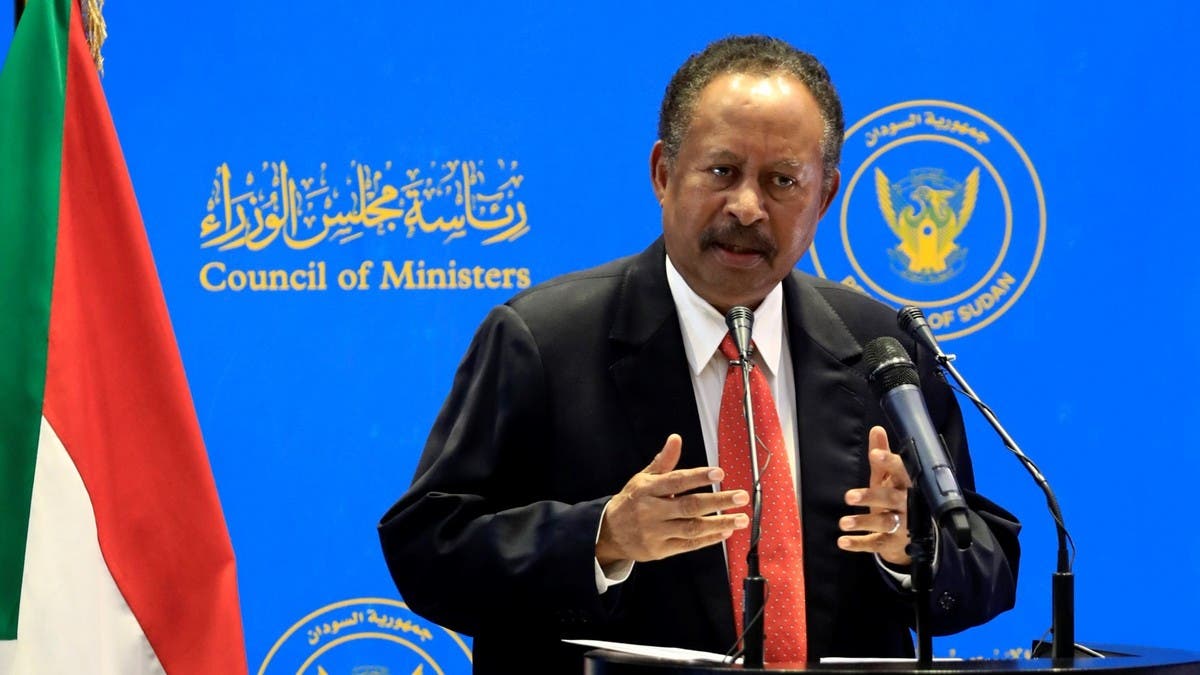The deal signed between Sudan’s Prime Minister Abdalla Hamdok and General Abdel-Fattah Burhan allows the PM to get rid of a previous government that caused him “headaches” in the past and start anew, but the deal was a lost opportunity to do more than restore the status quo, analysts told Al Arabiya English.
Hamdok signed a political agreement with Burhan on November 21, ending the coup launched by the military on October 25. But analysts question what that deal really means for the future of Sudan.
Here’s what analysts told Al Arabiya English:
A new cabinet
The political agreement allows Hamdok to form an independent cabinet of technocrats, until an election can be held in July 2023.
Analysts find that the deal between Hamdok and Burhan is an opportunity for the PM to clean house in the cabinet and appoint new ministers who would be more cooperative in implementing changes to the government, its policies and projects.
“The infighting of the former civilian government was a headache for Hamdok,” said Theodore Murphy, Director of the Africa Program at the European Council on Foreign Relations.
“The coup was a terrible catastrophe but if there is any silver lining to be wrung out of it, I think that Hamdok’s calculus was that it gave him an excuse to disperse of the difficult people in his constituency who were making his life difficult,” Murphy added.
Sudan has suffered from an ailing economy, widespread shortages of essential goods such as fuel, bread and medicine, incredibly high inflation and a society that was hard hit by the coronavirus outbreak.
Implementing reforms to better manage the country under Hamdok has not been very successful and the government’s efforts did not appease the general public.
“I think Hamdok thought [the deal] would improve his situation. The status quo before wasn’t great for Hamdok, because his political constituency, his cabinet, his ministers, there was a lot of infighting, there was a lot of difficulty,” Murphy said.
Hamdok’s office said in a statement last month that the PM denied having any “personal interest” in signing the deal and had stressed in multiple interviews that it was only for “national interest” and to “stop bloodshed”.
Why only Hamdok reinstated?
The reinstatement of Hamdok did not reverse the coup. The military retains overall control and the appointment of a technocratic government further dismisses the political parties and the pro-democracy protesters.
Analysts question why only Hamdok was reinstated from the previous government in the deal with the military.
“The agreement is a deal only between two figures: General Burhan and Hamdok,” Murphy said.
“The fact that he is the only one allowed to make that decision combined with the fact that his democratic constituency, the protest movement, has discarded him, that’s the more worrying part,” Murphy added.
“You don’t have to worry that the military – Burhan – is going to pull a fast one on Hamdok. I think what’s more worrying is what’s the understanding between Hamdok and Burhan.”
Yezid Sayigh, Senior Fellow at Malcolm H. Kerr Carnegie Middle East Center believes the deal means the military “successfully asserted their political dominance in terms of setting the pace and direction of the transitional process.”
“Hamdok apparently felt unable to resist this assertion. Maybe he judged the US and EU to be insufficiently committed to forcing the generals to retreat, but in all cases, he made a strategic misjudgment,” Sayigh added.
As for the future of the relationship between civilian leadership and the military in Sudan, Sayigh said: “If Hamdok resigns and moves back into opposition, there is a chance to bring Burhan and his allies under real pressure and salvage the transition”
“But if he doesn’t, or if he continues until he loses all legitimacy and influence and becomes expendable (for the military), then I fear that Sudan’s transitional process will be hijacked by the military who will work towards… a civilian façade government that cedes complete autonomy to the military and leaves it as the most influential political actor and also an economic actor,” he added.
Why are protesters against this deal?
The Sudanese Professionals' Association strongly opposed the deal, accusing Hamdok of “betrayal” and “political suicide”.
The Forces for the Declaration of Freedom and Change, an umbrella of many political parties and pro-democracy groups, also objected to any deal made with the military.
The protesters feel “there was a good political opportunity thanks to widespread domestic and international opposition to achieve more than simply restoring the status quo ante,” Sayigh said.
For the latest headlines, follow our Google News channel online or via the app.
Read more:
Sudan’s PM Hamdok denies any personal gain in signing political deal with Burhan
Sudan’s PM Hamdok says he expects new government to be formed within two weeks
Top Sudan general sees ‘positive’ signs coup sanctions will be lifted

 World3 years ago
World3 years ago
 World3 years ago
World3 years ago
 Business11 months ago
Business11 months ago
 Entertainment7 years ago
Entertainment7 years ago
 World7 years ago
World7 years ago
 Entertainment7 years ago
Entertainment7 years ago






